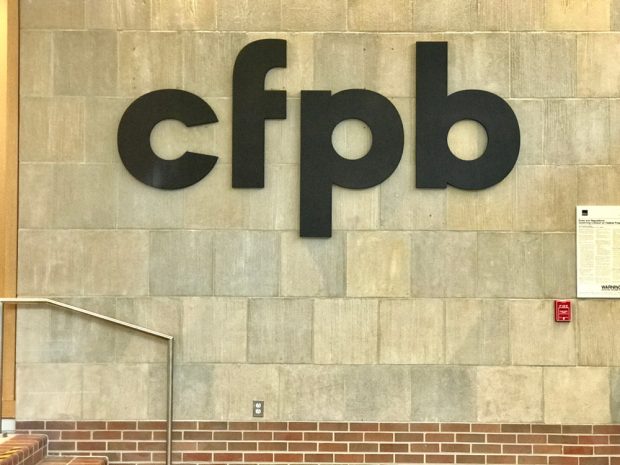 CFPB headquarters. (Source: Shutterstock)
CFPB headquarters. (Source: Shutterstock)
The CFPB has argued in federal court that the agency's payday lending rule is valid since Director Kathleen Kraninger "ratified" all agency actions following a U.S. Supreme Court ruling this summer that found the bureau's structure illegal.
The Supreme Court ruled that the agency's structure was unconstitutional since Kraninger could only be removed for cause. The ruling effectively meant that Kraninger could remain at the bureau but could be removed at will by the president.
Recommended For You
The Consumer Financial Services Association of America, the trade group representing payday lenders, and a Texas trade group contended that since the Supreme Court declared the original structure of the CFPB unconstitutional, the rule should be thrown out as well.
The CFSA filed suit against the CFPB in April 2018 alleging that the rule was arbitrary and would harm consumers who need loans offered by their members.
In documents filed earlier this month, the CFPB argued that the payday lenders' assertions were wrong.
"Although Plaintiffs offer a hodgepodge of arguments why the ratification here is not valid, those arguments find no support in precedent or in any separation-of-powers principle," the CFPB said.
The agency said that Kraninger had "fixed" the problems with agency actions by ratifying them following the Supreme Court ruling.
The agency also said the trade groups' challenge of the payday rule amounts to policy disagreements.
The payday rule has had a rocky complex past. In 2017 the agency issued a strict payday lending rule that the payday loan industry said would decimate their businesses, under then-Director Richard Cordray.
When President Trump took office, former CFPB Acting Director Mick Mulvaney and current Director Kathleen Kraninger said they intended to reevaluate the payday rule.
And the two sides in the lawsuit agreed to a stay in the payday lending lawsuit until the broader question of the agency's constitutionality could be addressed.
In July, Kraninger issued a final, revised payday loan rule. The final rule removed provisions requiring that a lender verify that a borrower had the ability to repay a loan before the loan is approved.
However, the rule retained portions of Cordray's rule that limited a lender's ability to gain access to a borrower's bank account.
Credit union trade groups also have been critical of the CFPB rule, contending that credit unions should be exempt from it or that any loan patterned after the NCUA's Payday Alternative Loan model be exempt.
Depending on the results of the presidential race, the payday loan rule could again be overhauled. Democratic presidential nominee Joe Biden has promised to reinvigorate the CFPB and may push for stricter consumer finance regulation.
© Touchpoint Markets, All Rights Reserved. Request academic re-use from www.copyright.com. All other uses, submit a request to [email protected]. For more inforrmation visit Asset & Logo Licensing.






